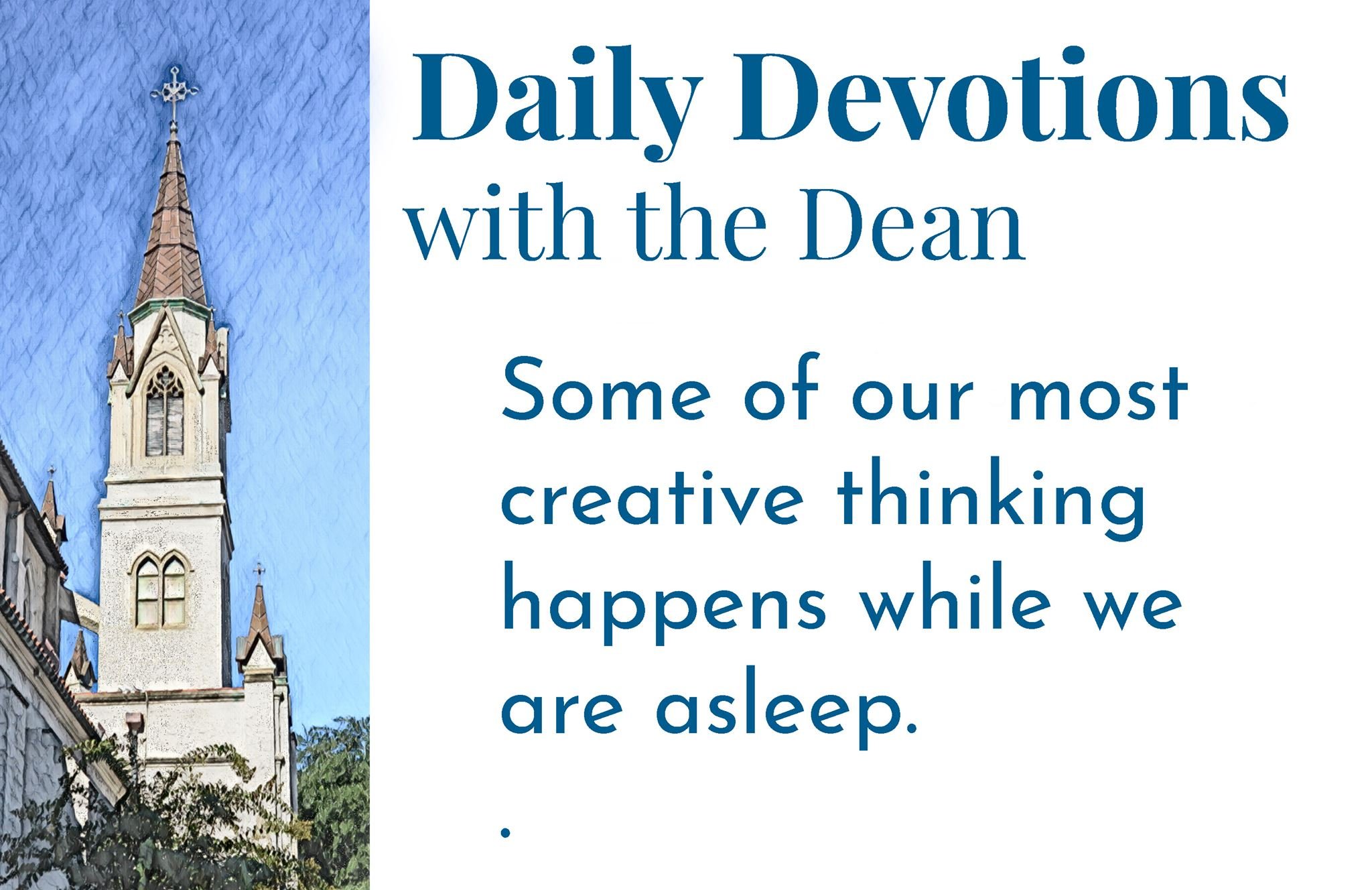Monday • 8/7/2023
Monday of the Tenth Week After Pentecost (Proper 13) • Year One
This morning’s Scriptures are: Psalm 80; 2 Samuel 7:1–17; Acts 18:–11; Mark 8:11–21
This morning’s Canticles are: following the OT reading, Canticle 9 (“The First Song of Isaiah,” Isaiah 12:2–6, BCP, p. 86); following the Epistle reading, Canticle 19 (“The Song of the Redeemed,” Revelation 15:3–4, BCP, p. 94)
Welcome to Daily Office Devotions, where every Monday through Friday we explore that day’s Scripture readings, as given in the Book of Common Prayer. I’m Reggie Kidd. Thanks for joining me. This Monday in the Season After Pentecost our readings finds us in Proper 13 of Year 1 in the Daily Office Lectionary.
There are so many ways we can put our relationship with God on the wrong footing. Mercifully, the Lord is not content to let us get away with it.
Image: "Doh, I knew I forgot something!" by THX0477 is licensed under CC BY 2.0
2 Samuel: getting straight on who is the gift-giver. After God allowed him to have a fine cedar house, David wished to return the favor. Commentators suggest David would thereby make himself God’s benefactor rather than vice versa. At first, the prophet Nathan affirms David’s plan. But the Lord intervenes. He tells Nathan to inform David that he’s not the person to build God a “house.” Instead, God will do that “house” building. In God’s ongoing and relentless grace, David will build, not a physical building, but a royal house: a dynasty, a lineage that will always rule.
What Yahweh will do for David is infinitely greater than anything David could do for Yahweh! “Thus says the Lord of Hosts, ‘I took you from the pasture, from following the sheep to be prince over my people Israel’” (2 Samuel 7:8). The leaders of Israel acknowledged David as their shepherd: “The Lord said to you: It is you who shall be shepherd of my people Israel, you who shall be ruler over Israel” (2 Samuel 5:2). And Yahweh will do extraordinary things for his people through the shepherd-kings who follow David. He will plant them in their homeland, free them from evildoers, grant rest from their enemies, take up residence among them, and provide perpetuity to David’s line (2 Samuel 7:10–17).
David is to understand — and it’s an invaluable lesson for you and me — that God’s gifts to us far outweigh our gifts to him.
Mark: don’t try to replace God’s gift. God’s preeminent gift, we find in the New Testament, is David’s greater Son. Jesus comes as the Good Shepherd (John 10). In Mark’s gospel, Jesus has shown himself to be that great Davidic shepherd-king. With compassion for “sheep without a shepherd” he has taught them (Mark 6:34). And by means of the feeding of the 5,000 and the 4,000, he has shown himself to be the ultimate shepherd who finds green pastures and sets a banquet for his flock (Mark 6:30–44; 8:1–9; see Psalm 23). King Jesus is simultaneously Good Shepherd and Bread from Heaven.
Believing that Jesus is heaven’s gift and God’s provision for the deepest needs of our life is not an easy thing. Despite just witnessing these two powerful miracles in Mark, and despite listening to the accompanying extensive teaching in John, Jesus’s disciples still don’t get it. On a boat journey recounted for us in today’s reading, the disciples panic to realize they have forgotten to make adequate provision for themselves. They’ve only brought one loaf of bread.
Jesus sees a teaching opportunity: “Watch out—beware of the yeast of the Pharisees and the yeast of Herod” (Mark 8:15). Jesus and Jesus alone is Bread of Life. On the one hand, Jesus warns those in the boat with him against a graceless piety like that of the Pharisees — those who attempt to climb a stairway to heaven by stiff-necked rule-keeping. On the other hand, Jesus warns his disciples against a secular worldliness like that of the Herodians — those who make peace with the earthly powers-that-be and live as lavish a life as possible.
I pray we may look past the allures of anything else, whether the pride of hyper-spirituality or the sloth of materialism, and graciously receive God’s gift of himself in his Son. May we feed richly on the Bread of Life.
Be blessed this day,
Reggie Kidd+














